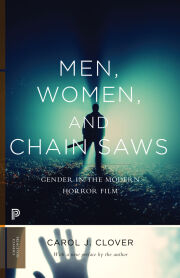
Ed tech indie horror
I’ve been reading some interesting takes on horror recently: the meta-fiction of Native American author Stephen Graham-Jones; the influential feminist analysis of horror exploitation movies Men, Women and Chainsaws by Carol Clover; a personal account of the importance of horror in Kris Rose’s Final Girl: How Horror Movies Made Me a Better Feminist; and The Black Guy Dies First, Robin Means Coleman’s analysis of black representation in horror. And it got me thinking about analogies to ed tech. I know, as usual. First of all, the horror take…
It has to be acknowledged up front that horror is often problematic – slasher films centre on the male gaze; women tend to die more horrifically and in close up; in the occult film the central focus is male transformation to a gentler version and the woman has to do the emotional labour (in this case being possessed by a demon) in order for the guy to realise it’s ok to eat avocado toast; and there are a number of racist tropes in horror such as the magical or sacrificial figure, whose function is to help the white character.
But there is also a lot of positive interpretations to be found. For example, Kris Rose argues “Another relatable thing about Final Girls, they often aren’t believed when they try and tell people that their lives are in danger. Not being believed is a daily fact for most women. When we see this being portrayed on screen it can be validating for women. … Often in real life scenarios women who ask for help are not believed or are dismissed as being over dramatic… A lesson I think we can all take away from our Final Girls is that we should believe women more.”
In Men, Women, and Chain Saws: Gender in the Modern Horror Film, the book that coined the term “final girl” Carol Clover examines exploitation horror movies as a serious genre, and becomes something of a convert. She highlights that in the Final girl there is cross-gender identification in that the predominantly young men in the audience identify with and root for the female hero. The men who might act as rescuer, as per traditional folk tales, are usually incompetent and end up dead. The woman has to do it herself. The killers are nearly always male, and sexually immature or frustrated – sort of Leatherface as the original incel. So there is little here by way of traditional male identification. She argues that if Rambo strayed into a slasher or occult movie he would end up dead or reformed. Arguably horror represents a better grounding for raising young feminists than the conventional action film.
Robin Means Coleman proposes that “black horror is our social syllabus” in that it is used to expose, confront and challenge racial issues, from the black protagonist getting killed by troops at the end of Night of the Living Dead, to the oppressive pseudo white liberalism of Get Out.
And so, tentatively, to ed tech. I think part of what has enabled these positive aspects to emerge in horror is that it is a genre often ignored or dismissed by ‘serious’ film makers and writers. The studio thought Hitchcock had lost the plot when he wanted to make Psycho, until it made them lots of money. This allows a degree of freedom to subvert and invent. It becomes a board church (perhaps not the best term to use in relation to horror) that welcomes anyone to come and have a go. The films Clover writes about were all largely independent movies made outside of the mainstream. There is a burgeoning indie horror author field.
This brings us back to the notion of the indie ed tech approach. Using open source or self-hosted options, the sort of things that Brian Lamb and Jim Groom wrote about long ago. If the VLE, Meta, X, etc represent the big studios then lightweight tools self-hosted are the indie alternatives. These can be relatively simple, for example the metaphor generator, or any of the fun stuff Alan Levine creates. My point is not so much that this tool can do this, and here’s one for something else, but rather by operating in an indie way we create new literacies. Clover comments on how the moral panic around horror in the 80s was very patronising and didn’t appreciate how knowledgeable and literate the audience were in watching horror. Mainstream conventions had been inverted. I would like to think the same happens with ed tech where an indie approach can help in similar subversion of the dominant tech bros narratives.


